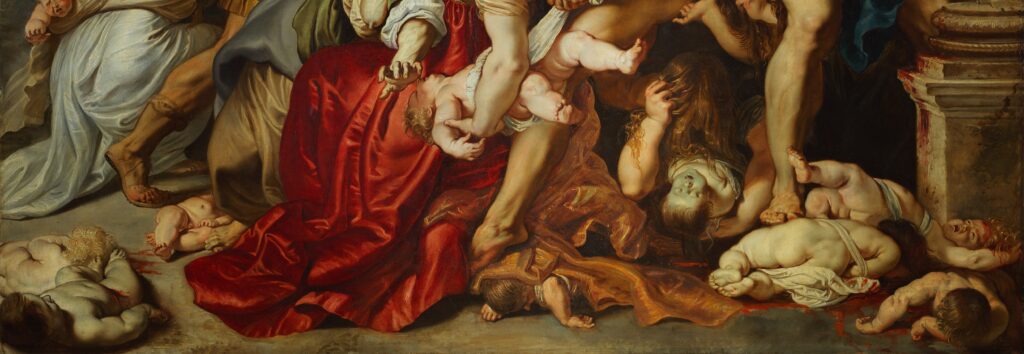28 December 2023
Holy Innocents
By Joey Belleza

One of the most precious and hauntingly beautiful products of English Christianity is the “Coventry Carol,” a sixteenth century poem which mourns the death of the Holy Innocents slain by the order of King Herod. Set to music many times in the following centuries, the more recent setting by contemporary British composer Phillip Stopford wondrously captures the plangency, horror, and anguish borne by the mothers of Bethlehem as their infant sons were massacred. The final verse of the Coventry Carol reads:
That woe is me, poor child, for thee
And ever mourn and may
For thy parting neither say nor sing,
“Bye bye, lully, lullay.”
So deep was the Catholic sensibility in sixteenth century Coventry that even in this popular hymn, the collect of the Mass for the Holy Innocents is subtly referenced: non loquendo sed moriendo confessi sunt (“not by speaking but by dying they confessed their faith”). These children who could “neither say nor sing” the name of Christ are yet martyrs for him, for they died in his place. And in this way, they too fulfill the words of the Psalmist, which are used as the Introit or Entrance Antiphon for the Mass of the day: “Out of the mouths of babes and of sucklings, O God, You have fashioned praise because of Your foes.”
On the Feast of the Innocents—especially in this time when the lands tread by Our Lord are once more engulfed in war—let us pray for all the innocent lives lost, hoping that they too might join the martyred infants of Bethlehem, with all the angels and saints, and sing at last an unending hymn of praise.
To hear the Coventry Carol in Phillip Stopford’s achingly beautiful setting, watch the video below.
